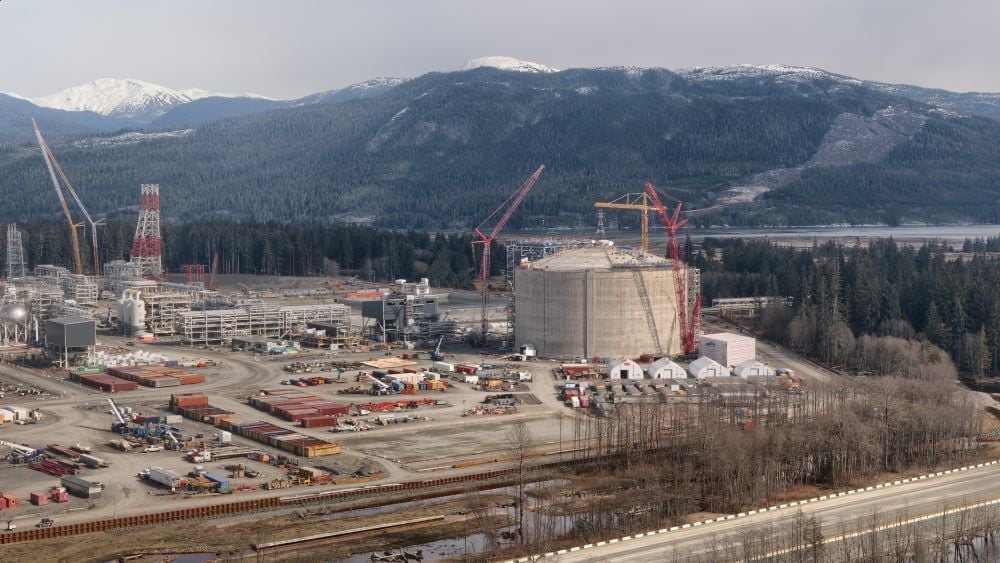Hydro testing of the tank at the site of Canada’s first LNG export facility, the Shell-led LNG Canada project in Kitimat, British Columbia, has been completed.
The procedure, also known as hydrostatic testing, ensures LNG tank safety and reliability, and regulatory compliance.
The event included pumping 170,000 cubic metres of water- the amount equivalent to 60 Olympic swimming pools – into the tank to make sure it maintains integrity.
Recently, the project also marked the completion of a critical phase in the construction of a large terminal for the liquefaction, storage and loading of LNG with the arrival of the last module by ship from its fabrication yard in Zhuhai, China.
LNG Canada is a joint venture between Shell, Petronas, PetroChina, Mitsubishi Corporation and Korea Gas Corporation.
When completed, the facility will consist of a natural gas receiving and LNG production unit, a marine terminal with the capacity to accommodate two LNG carriers, a tugboat dock, and LNG loading lines. It will also include LNG processing units, storage tanks, a rail yard, a water treatment facility, and flare stacks.
Its production capacity is planned at 14 million tonnes per annum (mtpa) from the first two trains, with the potential to expand to four trains in the future. The first shipment of LNG is scheduled for mid-decade.
